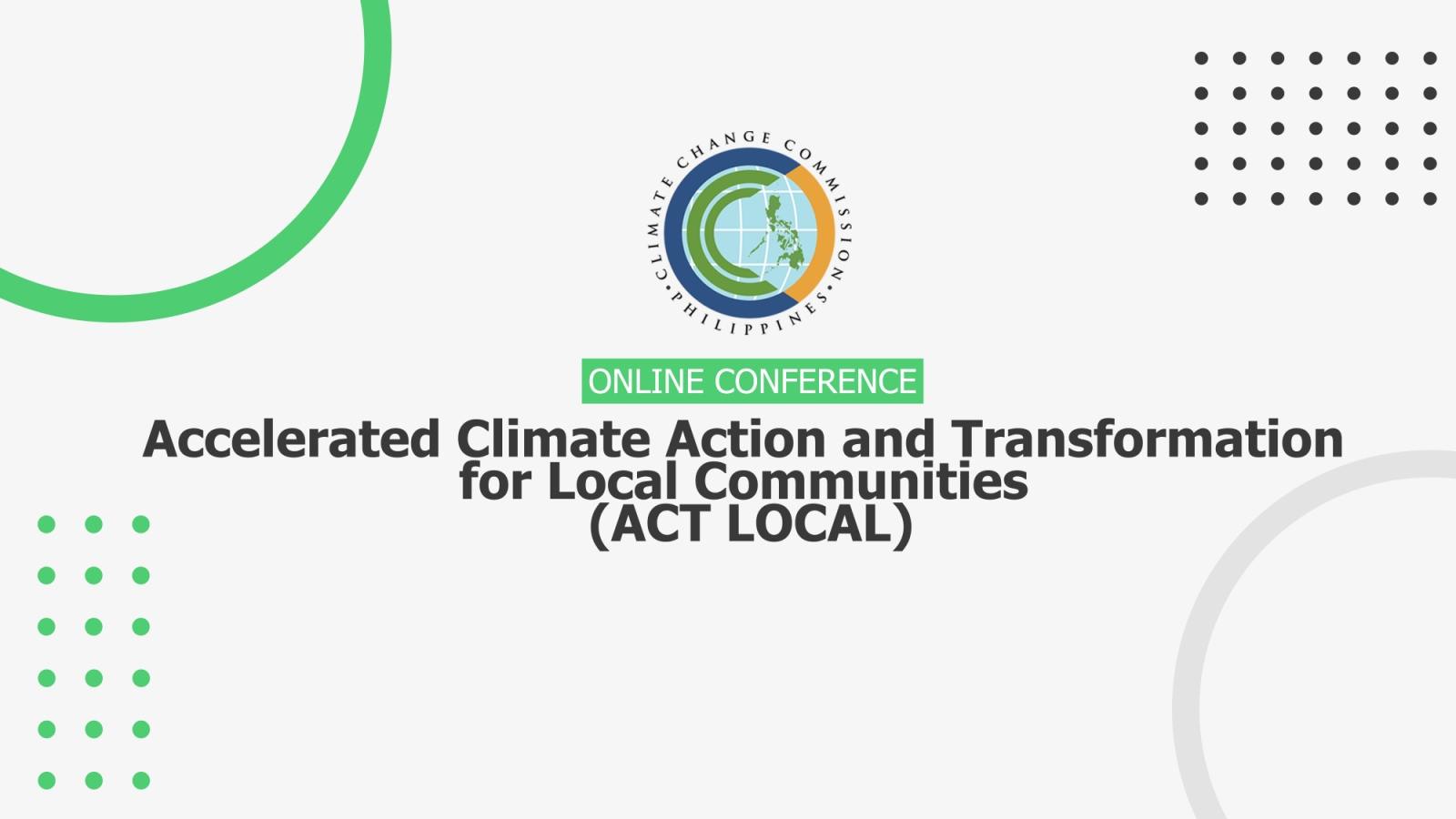

The Accelerated Climate Action and Transformation for Local Communities (ACT LOCAL) Online Conference, a part of the CCC's Communities for Resilience (CORE): Convergence Initiative, endeavors to strengthen the capacity and knowledge of LGUs, HEIs, and private sector on the science, issues, vulnerabilities, and risks of climate change and strengthen convergence among stakeholders for the implementation of programs for community-level resiliency.
RATIONALE
Communities for Resilience (CORE): Convergence Initiative was conceptualized and implemented as the Commission’s flagship capacity building program for Higher Education Institutions (HEIs), Local Government Units (LGUs), and the Private Sector for the development of Local Climate Change Action Plans (LCCAPs) that will guide decision makers and local development planners in developing their own adaptation and mitigation strategies.
To achieve this, the CORE Training Modules on Local Climate Change Action Plan (LCCAP) Formulation; Community-Level Greenhouse Gas (GHG) Emission Inventory; Climate Change Expenditure Tagging (CCET); and Accessing the People’s Survival Fund (PSF) were developed to enhance awareness and knowledge of LGUs, HEIs, and Private Sector on the science, issues and risks of climate change, strengthen appropriate institutional and technical capacity of LGUs, and provide technical guidance in the formulation of climate smart development plans (i.e., LCCAP, LDDRMP, CDP, CLUP).
Participants of CCC’s capacity building program will be the primary movers and key agents of change, especially at the community level, to enable the shift from business as usual to risk-informed and low-carbon development of communities. These partners for climate resilience will be clustered geographically and mobilized strategically through the establishment of consortiums that will be managed though the Accelerated Climate Action and Transformation (ACT Local) Program.
Through ACT Local, relevant stakeholders will be capacitated to assist and contribute to efforts that will generate information, boost capacity development, promote cooperation and convergence, facilitate vertical and horizontal alignment for development planning, and access climate financing windows toward climate resiliency.
OBJECTIVES
The ACT Local Program aims to formalize a sustainable partnership between the national government, academe, and the private sector in providing technical and/or financial resources to LGUs on climate action.
Specifically, the ACT Local Program endeavors to achieve the following:
Interested participants may reserve their slots by registering through this link.
.png)
NGAs and HEIs can provide capacity development for LGUs on understanding and using climate information. NGAs can facilitate access to finance while the private sector can also facilitate access to finance or provide finance for implementation. HEIs and the private sector can aid in the understanding, production, provision, and use of climate information.
The ACT Local Program will serve as the overarching partnership program of the Commission for the delivery of its CORE Orientation and Training Program through the established climate change consortiums.
| Partnership program | ACT Local Program |
| Partnership platform/strategy | Establishment of Consortium |
| Capacity building program/activity for partners | CORE Orientation and Training Program |
The engagement and mobilization of identified stakeholders will be covered by a Memorandum of Understanding which will serve as the legal basis for succeeding activities under the collaboration.
The Commission shall lead the organization of the consortium. It shall coordinate with relevant government agencies, target LGUs, partner HEIs, and interested members of the private sector to formalize the agreement for a particular consortium and deliver the capacity building activities as identified by partners.
Partner government agencies will provide the appropriate and necessary technical assistance respective of their mandates to HEIs, LGUs, and private sector.
After they have undergone the capacity building activities, HEIs will provide research and extension services as an assistance to LGUs for the development of risk-informed plans that are also compliant to the Rational Planning System for LGUs. The services they will provide to LGUs can also contribute to the aggregation of resiliency-related datasets that will benefit the planning and policy direction at the national level.
The private sector can play a significant role in the resiliency-building process by supporting initiatives at the community level and research for the academe sector as a form of their corporate social responsibility. These forms of support can be reported in their sustainability reports.